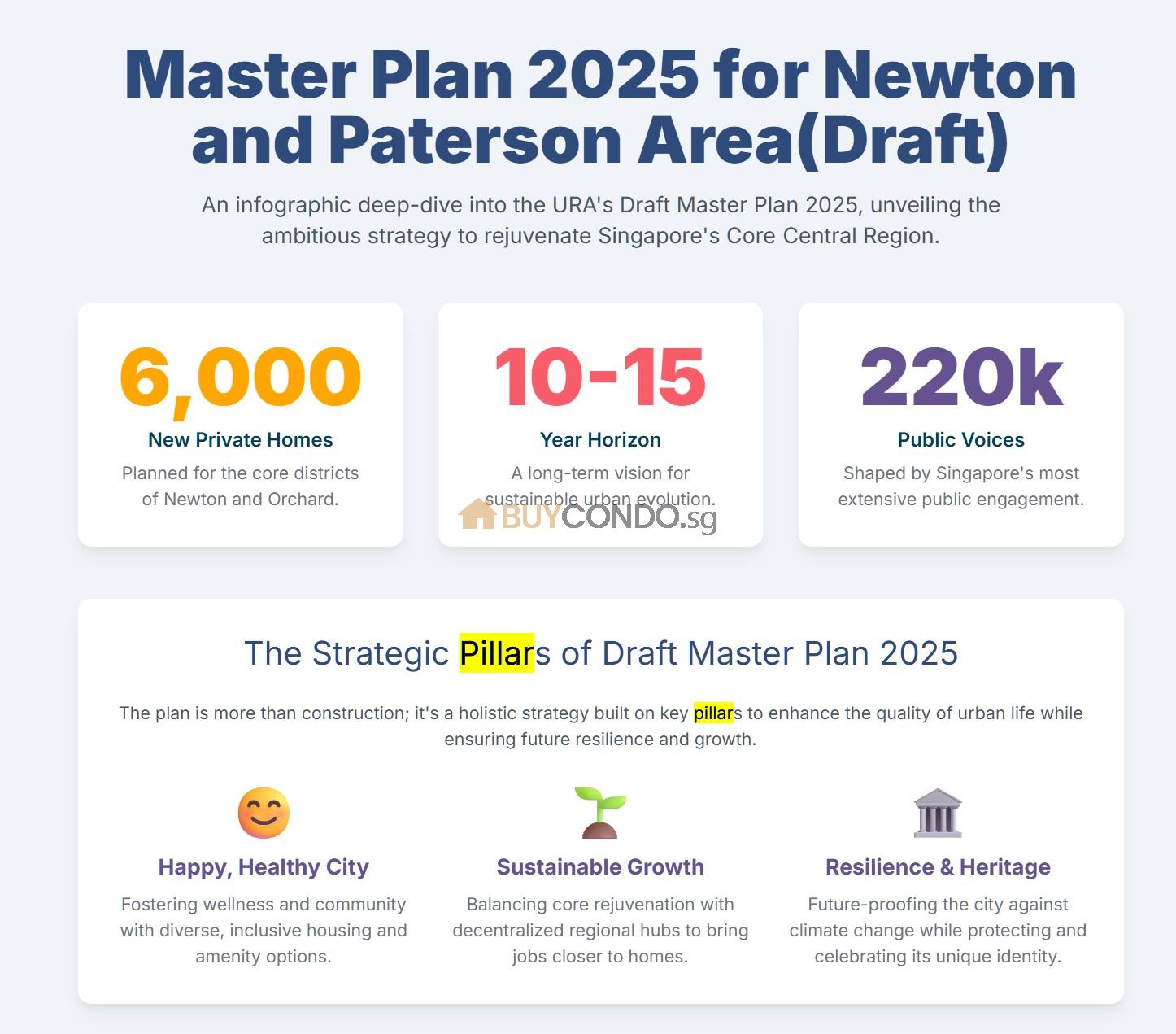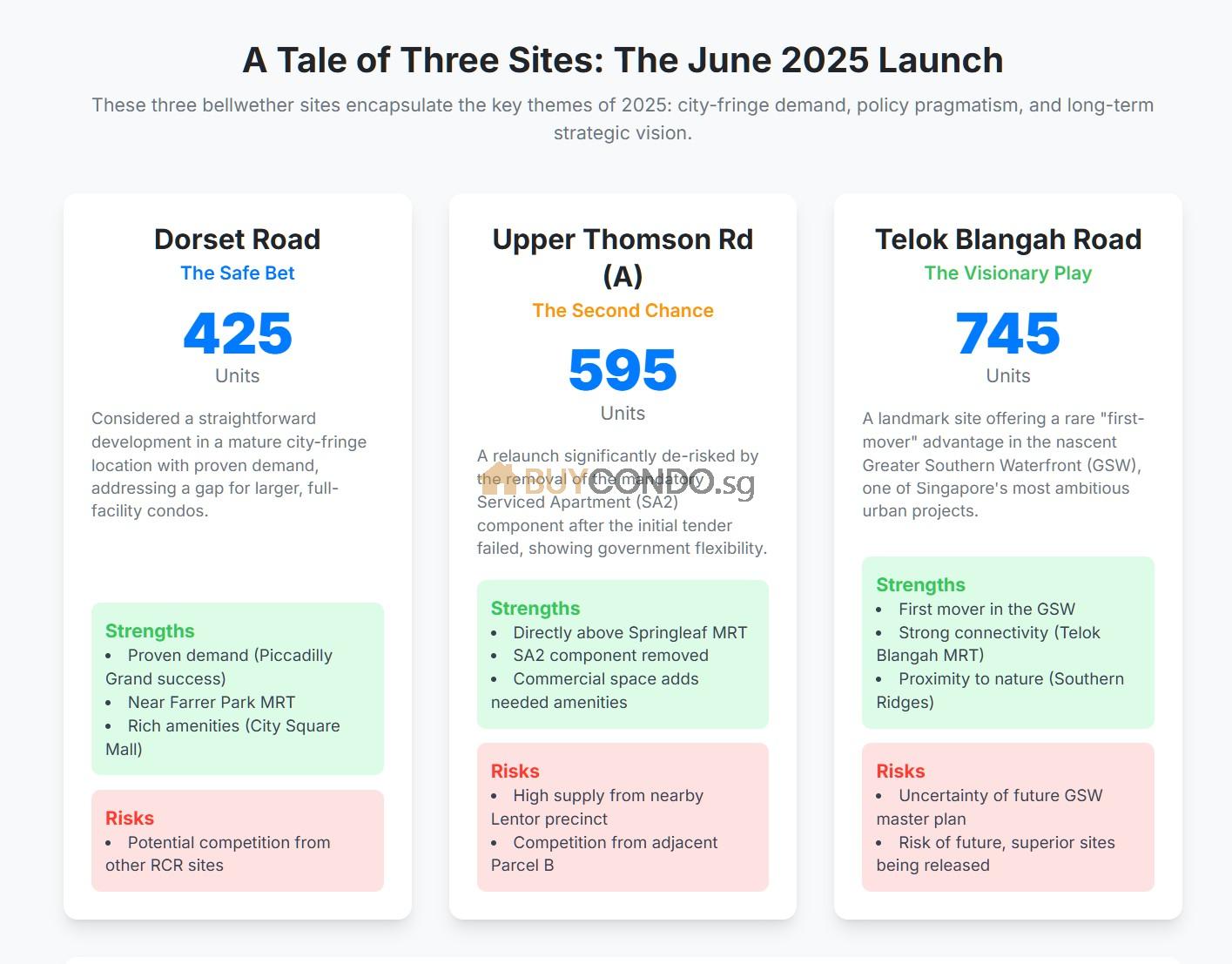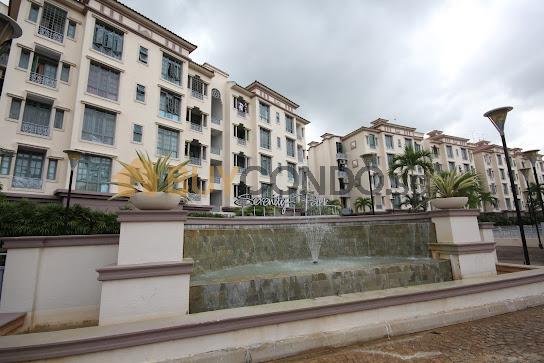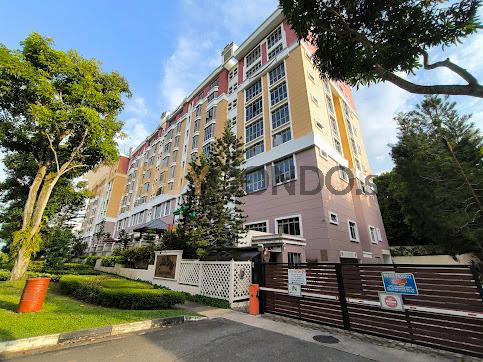What I do expect from my MCST in Condo
When you invest in a condominium, you expect more than just a stylish living space. You envision a well-maintained community where everything runs smoothly. But what can you really expect from your Management Corporation Strata Title (MCST)? Do they have a responsibility to ensure your needs are met, or are their actions solely driven by financial considerations?
In this article, we will explore the role of the MCST in condo management and uncover the best practices that can make a difference in your living experience. From understanding condo regulations to evaluating the MCST’s performance, you will discover how to hold them accountable and create a harmonious living environment.
Key Takeaways:
- Understanding the responsibilities and best practices of the MCST is crucial for condo residents.
- Active involvement in the MCST allows residents to have a direct impact on decision-making processes.
- Evaluating the MCST’s performance involves considering factors such as property management efficiency and effective budgeting.
- Communication and transparency are essential for building trust between residents and the MCST.
- Engagement in community-building activities and asset enhancement contribute to a better living experience.
Understanding Condo Regulations and By-Laws
Condo regulations and by-laws form the foundation of proper governance and ensure the smooth operation of a residential community. They encompass a variety of aspects crucial to maintaining a well-functioning environment, including building maintenance, fire safety, garbage disposal, and the utilization of facilities. As a resident, it is essential to comprehend the different types of rules involved, ranging from government-imposed regulations to additional by-laws proposed by the Management Corporation Strata Title (MCST).
By actively participating in annual meetings and engaging in the voting process for these regulations, you can shape and influence your community’s maintenance standards. Strata council governance is a collaborative effort that requires the involvement and input of every resident. Understanding and abiding by the established regulations and by-laws contribute to the overall well-being and harmonious living experience within the residential community.
Types of Regulations and By-Laws
The regulations governing a residential community typically fall into two categories: government-imposed rules and additional by-laws proposed by the MCST.
- Government-Imposed Rules: These regulations are set by the relevant authorities to ensure compliance with standard procedures and safety protocols. They cover vital areas such as fire prevention, condominium security, and building maintenance. Adhering to these rules is crucial for safeguarding the well-being of residents and maintaining a secure living environment.
- Additional By-Laws Proposed by the MCST: In addition to government-imposed rules, the MCST has the authority to propose supplementary by-laws specific to the residential community. These by-laws may pertain to matters such as noise control, pet ownership, or the usage of communal facilities. Your active involvement in the decision-making process during the annual general meetings enables you to voice your opinions and influence the development of these by-laws.
By understanding and adhering to both the government-imposed regulations and the additional by-laws proposed by the MCST, you contribute to the smooth functioning and overall maintenance standards of your residential community.
Maintaining Residential Community Maintenance Standards
Residential community maintenance standards play a vital role in ensuring a pleasant and safe living environment for all residents. Compliance with regulations and by-laws contributes to the overall upkeep of the community’s facilities, aesthetics, and infrastructure.
An effective way to uphold these standards is through active participation in the annual meetings and voting processes. By doing so, you have a direct impact on the decisions made regarding the maintenance and enhancement of communal areas and facilities. Your involvement also helps to promote accountability and transparency within the MCST.
Importance of Active Involvement in the MCST
Active involvement in the MCST is crucial for homeowners to ensure homeowners association accountability and residential strata committee effectiveness in the management of the residential community. By attending the annual general meetings (AGMs), you have the opportunity to voice your opinions, vote on important matters, and challenge proposed by-laws before they are approved.
This level of participation allows you to have a direct impact on the decision-making process, ensuring that the MCST is working in the best interests of the community. By actively engaging with the MCST, you can hold them accountable for their actions and ensure that they are fulfilling their responsibilities to maintain a high standard of living in your residential community.
“Active involvement is the key to creating a responsible and efficient homeowners association. By actively participating in the decision-making process, homeowners can shape the future of their community and hold the MCST accountable for their actions.”
Attending AGMs and participating in discussions and voting not only allows you to express your concerns and preferences, but it also keeps you informed about the various initiatives and plans of the MCST. Additionally, it provides an opportunity to collaborate with other homeowners and contribute to the development and improvement of the residential community.
The Power of Your Voice
Your active involvement in the MCST not only holds them accountable but also ensures that the decisions made are reflective of the collective needs and priorities of the homeowners.
By actively participating in the MCST, you can:
- Voice your opinions and concerns
- Vote on important matters
- Challenge proposed by-laws
- Influence the decision-making process
Your participation is a testament to the importance of homeowners association accountability and the effectiveness of the residential strata committee in managing your community. Together, you can create a thriving and harmonious living environment.
Consequences of Inactive Involvement
If homeowners do not actively engage with the MCST and participate in decision-making processes, the community may suffer from a lack of representation and accountability. Inactive involvement can lead to the MCST making decisions that do not align with the needs and preferences of the homeowners, resulting in dissatisfaction and potential conflicts.
Therefore, it is essential for homeowners to recognize the power of their voice and actively participate in the MCST. By doing so, you can contribute to the effective management and improvement of your residential community, ensuring that it remains a desirable place to live.
Factors in Evaluating the MCST’s Performance
Evaluating the performance of your Management Corporation Strata Title (MCST) is crucial in ensuring the efficient management of your residential community. By considering various factors, you can assess how well your MCST is handling its responsibilities and meeting the needs of the residents.
Property Management Efficiency
One key factor to evaluate is the property management efficiency of your MCST. This involves assessing how well they handle day-to-day tasks, such as payroll management, security company selection, and basic building maintenance. Efficient property management ensures that operations run smoothly and that issues are promptly addressed, contributing to a well-functioning and enjoyable living environment.
Building Maintenance Budgeting
Effective budgeting for building maintenance is another important aspect to consider. A well-managed MCST should allocate sufficient funds for regular maintenance and repairs to ensure that common areas are well-maintained and facilities are upgraded when necessary. By prioritizing building maintenance within the budget, the MCST demonstrates its commitment to upholding the quality and value of the residential community.
By assessing these factors, residents can gain a comprehensive understanding of the MCST’s performance and determine if they are effectively managing the residential community.
| Factors to Consider | Evaluation Criteria |
|---|---|
| Property Management Efficiency | – Timely response to maintenance requests – Efficient handling of administrative tasks – Proactive approach to resolving issues |
| Building Maintenance Budgeting | – Adequate allocation of funds for regular maintenance – Proper planning for major repairs or upgrades – Transparent financial reporting |
Assessing the MCST’s performance in these areas empowers residents to actively participate in ensuring the effective management of their residential community.
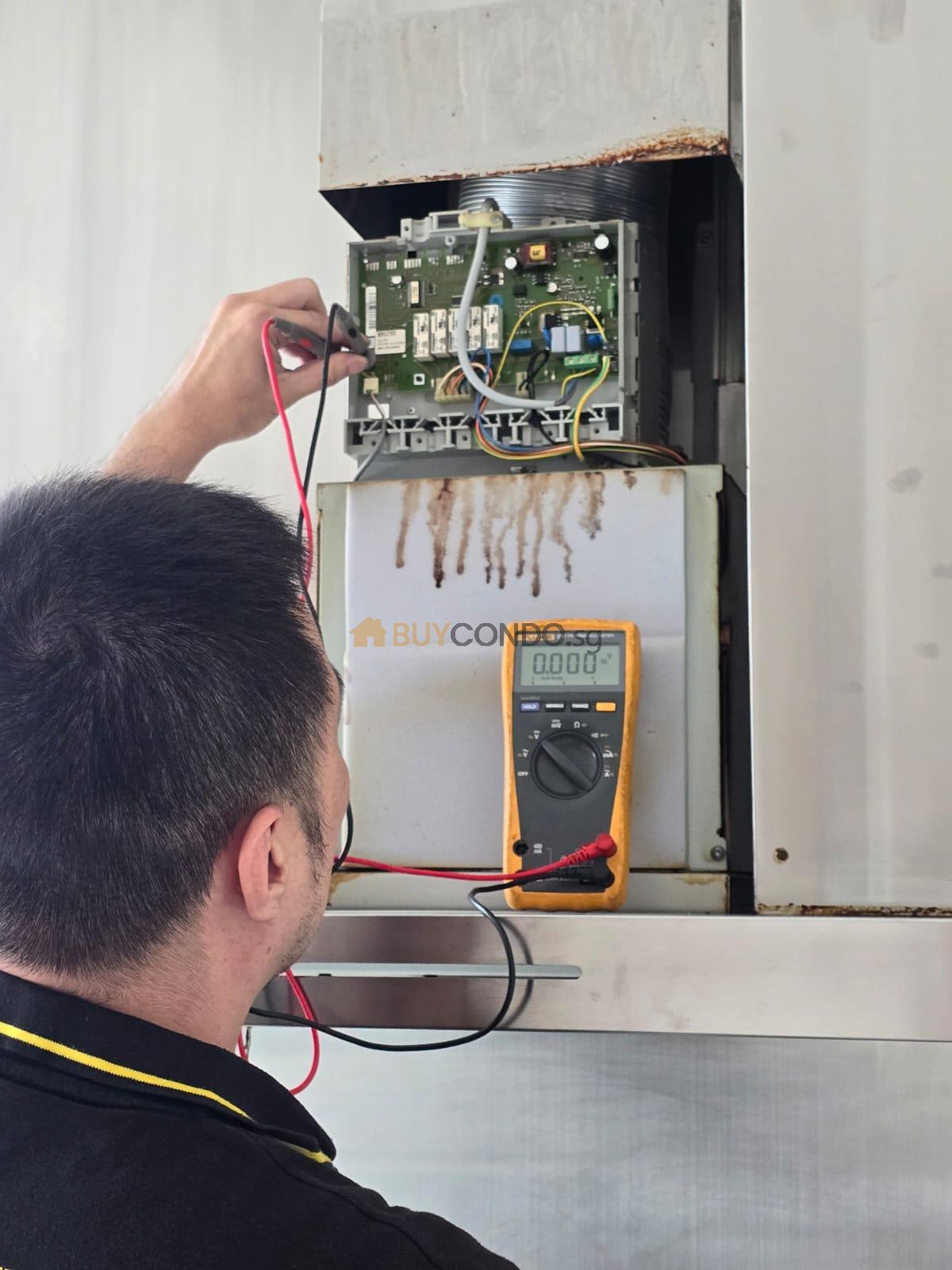
Communication and Transparency
Effective communication and transparency are key pillars for ensuring a well-functioning MCST and fostering a strong sense of community within a residential condominium. Homeowners expect and deserve regular and clear communication from the MCST regarding financial matters, maintenance updates, and upcoming projects. Transparent financial practices, including proper accounting and disclosure of expenses, contribute to homeowners’ trust in the MCST and its ability to manage the community’s funds responsibly.
Open channels of communication play a vital role in keeping homeowners informed and engaged. The MCST should establish various communication channels, such as newsletters, online platforms, or town hall meetings, to facilitate the exchange of information and encourage residents to voice their concerns or suggestions. By promoting an environment of open dialogue, homeowners can actively participate in the decision-making process and contribute to the overall well-being of the residential community.
“Transparent communication is the foundation of trust and collaboration within a residential community. By fostering open channels of communication, the MCST can effectively address homeowners’ concerns, share important information, and create a sense of unity among residents.”
One powerful tool for promoting transparency is to provide homeowners with access to relevant financial information. By being transparent about the community’s financials, including budget breakdowns, expenses, and anticipated expenditures, the MCST demonstrates accountability and allows homeowners to understand how their contributions are being utilized. HOA financial transparency fosters trust among homeowners, enabling them to make informed decisions and contribute actively to the community’s financial management.
Open Communication Channels:
- Regular newsletters sent via email or distributed physically within the community, providing updates on maintenance schedules, upcoming events, and community announcements.
- Online platforms, such as community forums or social media groups, offering a space for homeowners to ask questions, share suggestions, and engage in discussions with fellow residents and the MCST.
- Town hall meetings or community gatherings, serving as forums for face-to-face interactions, where homeowners can voice their concerns directly to the MCST and receive timely responses.
By prioritizing communication and transparency, the MCST can establish a positive relationship with homeowners and maintain an environment of trust and collaboration within the residential community. When homeowners feel heard, informed, and engaged, they are more likely to actively contribute to the community’s growth and prosperity.
| Benefits of Communication and Transparency | Importance |
|---|---|
| Fosters a sense of community and belonging | Creates unity and shared responsibility among homeowners |
| Allows homeowners to make informed decisions | Enables active participation in community matters |
| Builds trust and confidence in the MCST | Strengthens the relationship between homeowners and the MCST |
| Facilitates the identification and resolution of issues | Promotes timely and effective problem-solving |
Community Engagement and Asset Enhancement
A proactive MCST understands the importance of fostering a sense of community and continuously enhancing the common areas of the residential property. By engaging residents in community-building activities and investing in asset enhancement, the MCST creates a thriving living environment that residents can be proud of.
To encourage community engagement, the MCST organizes a variety of activities that appeal to different interests and promote interaction among residents. These activities may include flea markets, parties, or open bulletin boards where residents can share ideas and recommendations. By participating in these events, residents have the opportunity to forge meaningful connections, strengthen social bonds, and contribute to the overall vibrancy of the community.
Asset enhancement is another crucial aspect of MCST’s responsibilities. The MCST prioritizes the upkeep and improvement of common areas, ensuring they are well-maintained and pleasant for all residents to enjoy. This includes upgrading facilities, improving landscaping, and even creating new amenities that enhance the overall living experience.
By engaging in common areas upkeep strategies, such as regular cleaning, landscaping, and making timely repairs, the MCST ensures that residents can fully utilize and enjoy the shared spaces. Additionally, the MCST may also invest in long-term projects aimed at revamping the common areas to keep up with evolving needs and trends.
The following table highlights some examples of community engagement activities and asset enhancement initiatives undertaken by a proactive MCST:
| Community Engagement Activities | Asset Enhancement Initiatives |
|---|---|
| 1. Monthly community events, such as themed parties or movie nights | 1. Renovation of the swimming pool area with new deck chairs and landscaping |
| 2. Creation of shared interest groups (e.g., gardening, book clubs, sports) | 2. Installation of outdoor fitness equipment in common park areas |
| 3. Organization of flea markets and bazaars to support local entrepreneurs | 3. Renovation of the clubhouse to include a modern gym and multipurpose hall |
| 4. Open bulletin boards for residents to post announcements, recommendations, and requests | 4. Upgrading and modernizing security systems and surveillance cameras |
These community engagement activities and asset enhancement initiatives not only contribute to a vibrant and harmonious residential community, but they also enhance the overall value of the property. Residents can take pride in their living environment and enjoy a higher quality of life.
Handling Disputes and Conflict Resolution
Disputes or conflicts between homeowners and the MCST are not uncommon. To address these issues effectively, it’s crucial to understand the process of dispute resolution and be aware of your rights as a homeowner.
If you find yourself in a dispute with the MCST, it’s recommended to first attempt negotiations or mediation to find a resolution. Open and honest communication is key during this process, as it can help identify the root cause of the conflict and guide towards a satisfactory outcome.
However, if negotiations or mediation fail to resolve the dispute, legal action may be necessary as a last resort. Before taking this step, it’s important to consult with a lawyer specializing in condominium law to understand the legal options and potential outcomes.
In Singapore, homeowners have specific avenues for legal action against the MCST. Disputes related to maintenance fees, breaches of the MCST’s obligations, or improper conduct can be brought to the attention of authorities such as the Singapore Tourism Board (STB) or the Strata Titles Boards (STB), depending on the nature of the issue.
Remember, legal action should only be pursued when all other options have been exhausted. It’s important to weigh the potential costs, time, and energy involved in taking legal action against the desired outcome. Consulting with legal experts can provide guidance on the best course of action based on your specific situation.
Should legal action become necessary, make sure to document all interactions, correspondence, and evidence related to the dispute. These records will be critical when presenting your case and seeking a resolution.
Handling disputes can be challenging, but by understanding the available options and seeking appropriate legal advice, homeowners can work towards a fair and satisfactory resolution to their conflicts with the MCST.

Example Table: Common Types of Disputes and Appropriate Resolution Channels
| Dispute Type | Resolution Channel |
|---|---|
| Disagreements over maintenance fees | Contact the MCST in writing and consult the Strata Titles Boards (STB) |
| Breaches of MCST’s obligations | Seek legal advice and consider filing a complaint with the Singapore Tourism Board (STB) or the Strata Titles Boards (STB) |
| Improper conduct or mismanagement | Consult legal counsel and report the issue to the Strata Titles Boards (STB) |
| Noise complaints or disturbances | Raise the concern with the MCST and consider involving relevant authorities, such as the Singapore Police Force or the National Environment Agency |
Remember, each dispute may have unique characteristics, so it’s important to assess the situation carefully and consider seeking professional legal advice for guidance tailored to your specific circumstances.
Spotting Signs of a Good MCST
When choosing a condominium, it is vital to spot the signs of a good MCST (Management Corporation Strata Title). By evaluating their performance, you can ensure a positive living experience in your residential community. Here are some steps you can take:
- Attend Annual General Meetings (AGMs): Participating in AGMs allows you to gather insights into the MCST’s decision-making process and management strategies. You can actively engage with other homeowners and voice your concerns or suggestions concerning the condominium’s management.
- Gather Feedback from Tenants: If possible, talk to current or past tenants to get their perspective on the MCST’s performance. Their experiences and opinions can help you gauge the MCST’s reliability and effectiveness in managing the property.
- Research the MCST’s Track Record: Look into the MCST’s history in managing other properties. Check if they have a solid reputation and a track record of successful management. This research can provide valuable insights into their competency and reliability.
- Assess Asset Enhancement Efforts: Pay attention to the MCST’s efforts in enhancing the common areas and facilities within the condominium. A good MCST will prioritize asset enhancement initiatives, ensuring a well-maintained and enjoyable living environment for all residents.
- Evaluate Maintenance Standards: Assess the maintenance standards set by the MCST. A reliable MCST will have stringent maintenance protocols in place, guaranteeing the upkeep of common areas, facilities, and building systems.
By following these steps, you can make an informed decision when choosing a reliable MCST for your condominium.
Maintaining a Positive Living Experience
“Choosing a reliable MCST is crucial to maintain a positive living experience in your residential community. By evaluating their performance and considering factors such as attending AGMs, gathering tenant feedback, researching their track record, assessing asset enhancement efforts, and evaluating maintenance standards, you can ensure that the MCST is equipped to meet your expectations. This diligent evaluation empowers you to choose a reliable MCST that will effectively manage your condominium and contribute to a harmonious living environment.”
Conclusion : What I do expect from my MCST in Condo
Ensuring the efficient management of your condominium requires expecting a well-performing MCST. By understanding their responsibilities and best practices, you can actively participate in decision-making and hold the MCST accountable. Evaluate their performance based on property management efficiency and effective budgeting for building maintenance. Foster communication and transparency through regular updates and transparent financial practices.
Additionally, engage in community-building activities to strengthen the sense of community and focus on asset enhancement to enhance the living experience. By following this checklist and actively contributing, you can make informed decisions and contribute to the efficient management of your condominium.
FAQ
What can I expect from my MCST in a condo?
You can expect your condo MCST to play a crucial role in your residential community’s efficient management and upkeep. They are responsible for tasks such as building maintenance, fire safety, garbage disposal, and the use of facilities.
What is the importance of understanding condo regulations and by-laws?
Understanding condo regulations and by-laws is essential for maintaining proper governance and ensuring the smooth operation of the residential community. These rules cover various aspects of community living and maintenance standards.
How can I be actively involved in the MCST?
You can be actively involved in the MCST by attending the annual general meetings (AGMs), voicing your opinions, voting on important matters, and challenging proposed by-laws before approval.
What factors should I consider when evaluating the MCST’s performance?
Factors to consider when evaluating the MCST’s performance include property management efficiency, effective budgeting for building maintenance, and their overall handling of day-to-day tasks and projects.
Why is communication and transparency important in the MCST?
Communication and transparency are crucial for a well-functioning MCST. Regular and clear communication regarding financial matters, maintenance updates, and upcoming projects and transparent financial practices help build trust and accountability.
How can the MCST engage residents and enhance the community?
The MCST should engage residents in community-building activities and focus on asset enhancement, such as upgrading facilities, improving landscaping, and creating new amenities, to enhance the overall living experience.
How should disputes with the MCST be handled?
Residents should familiarize themselves with the process of dispute resolution and their rights. Legal action can be sought as a last resort if negotiations or mediation fail.
What are some signs of a good MCST?
To spot signs of a good MCST, attend annual general meetings, gather feedback from tenants, and research the MCST’s track record in managing other properties. Pay attention to asset enhancement efforts and maintenance standards.
What should homeowners expect from their MCST in a condo?
Homeowners should expect a well-performing MCST that follows best practices, ensures financial transparency, engages in effective communication, and actively seeks to enhance the residential community.







